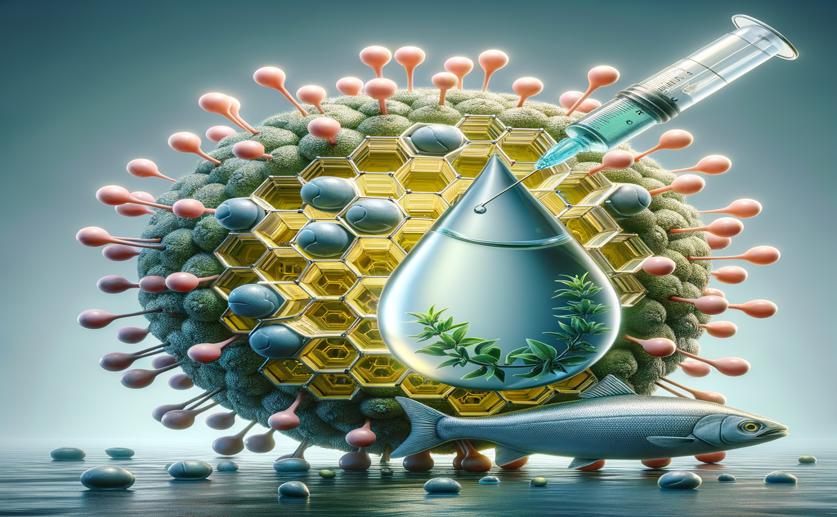
Creating Oregano Oil Nanocarriers to Fight Fish Disease
Jenn Hoskins
15th March, 2024

Image Source: Natural Science News, 2024
Key Findings
- Researchers improved oregano oil's ability to fight food-borne pathogens using niosomes
- Niosome-encapsulated oregano oil was 2-4 times more effective against bacterial biofilms
- The niosome delivery system proved safe for human cells in tests
References
Main Study
1) Development, physicochemical characterization, and antimicrobial evaluation of niosome-loaded oregano essential oil against fish-borne pathogens.
Published 15th March, 2024
https://doi.org/10.1016/j.heliyon.2024.e26486
Related Studies
2) Streptomycin Sulfate-Loaded Niosomes Enables Increased Antimicrobial and Anti-Biofilm Activities.
3) Evaluation of Green Silver Nanoparticles Fabricated by Spirulina platensis Phycocyanin as Anticancer and Antimicrobial Agents.
4) The effective components of herbal medicines used for prevention and control of fish diseases.



 8th March, 2024 | Jenn Hoskins
8th March, 2024 | Jenn Hoskins